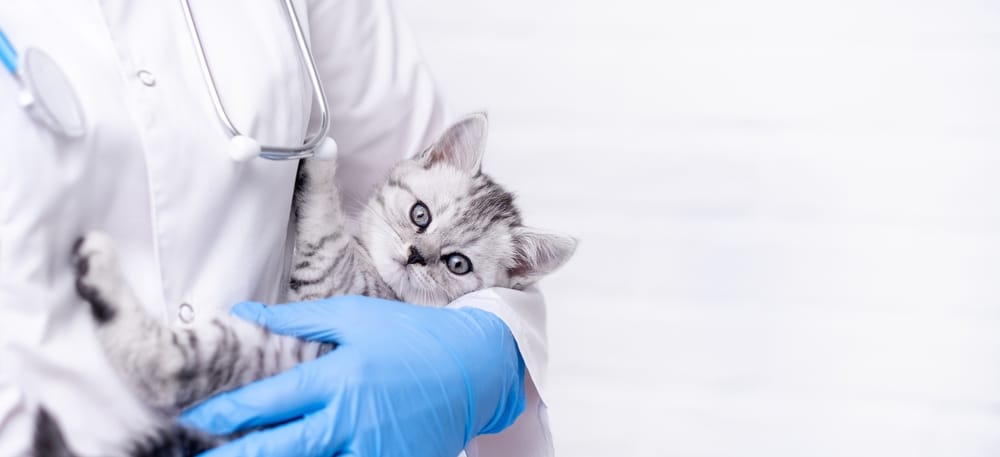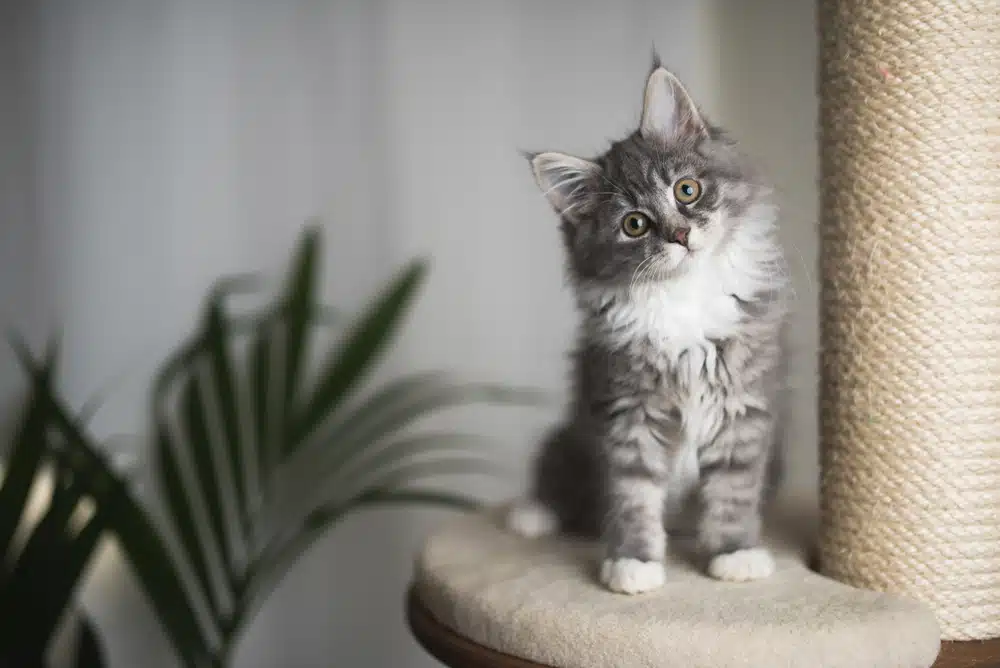Welcoming a kitten into your home is an exciting time filled with cuddles, play, and lots of love. Ensuring your new whiskered friend stays healthy is also paramount. Your kitten’s vaccines protect them from various contagious diseases and establish the basis for their purr-fectly happy life. Pets & Friends Animal Hospital explores the core vaccines your kitten needs, including the age at which they need them to remain safe and healthy.
Understanding kitten vaccines
Vaccines are critical for all pets’ preventive health care, including kittens. Vaccines work by stimulating the immune system to produce antibodies against specific diseases, providing immunity if your pet is exposed to the actual virus or bacteria in the future. Vaccines are typically administered as injections, although some can be given orally or intranasally. Kittens and puppies are protected against many diseases during their first few weeks of life because their mothers convey antibodies to their youngsters through their milk. However, this protection only lasts a few weeks after birth, so ensuring your kitten receives vaccinations at the appropriate age is paramount.
Core vaccines for kittens
Core vaccines protect against virulent or life-threatening diseases, including those that can be transmitted to other pets and people. Kittens’ core vaccines protect against the following diseases:
- Feline viral rhinotracheitis (FVR) — FVR, also known as feline herpesvirus-1 (FHV-1), is a highly contagious respiratory disease that can cause sneezing, nasal discharge, fever, and eye ulcers in kittens. The condition is not curable, and many cats infected with FVR develop upper respiratory infections and conjunctivitis, inflammation of the eye conjunctiva. FVR can also impact your pet’s immune system, requiring supportive veterinary care.
- Feline calicivirus (FCV) — FCV is another respiratory virus that causes symptoms similar to FVR, including sneezing, eye and nasal discharge, mouth ulcers, and a high body temperature. Many FCV cases can be managed; however, sometimes, this disease can be fatal, especially in immunocompromised cats.
- Feline panleukopenia virus (FPV) — Also known as feline distemper, FPV is a highly contagious and often fatal viral disease that affects a kitten’s gastrointestinal (GI) tract, causing vomiting, diarrhea, lethargy, and dehydration. The virus attacks and kills the rapidly growing and dividing cells in the body, including cells in the bone marrow, intestines, and skin. FPV infection spreads in areas where cats are in close quarters such as animal shelters and multi-cat households.
- Feline Leukemia Virus (FeLV) — FeLV is a contagious virus that weakens a kitten’s immune system, making them susceptible to infections and certain cancers. Like most viruses, FeLV is a tiny microorganism that can only replicate inside living cells. If your cat contracts this virus, their cells die or mutate, thus weakening the immune system and allowing cancerous cells to multiply.
- Rabies — Rabies is a fatal viral disease that can be transmitted to people and other animals through an infected animal’s bite or direct contact with their saliva. Many wild animals, such as skunks, foxes, bats, and raccoons, are rabies carriers. Any animal, however, is susceptible to rabies if unvaccinated. Vaccination against rabies is required by law in Colorado.
Kitten vaccine schedule
The vaccination schedule for kittens typically starts when they are around 6 to 8 weeks of age and continues until they are 16 weeks. Here’s a general guideline for the age at which kittens should receive their vaccines:
- Age 6 to 8 weeks — FVRCP vaccine, includes feline viral rhinotracheitis, calicivirus, and panleukopenia
- Age 10 to 12 weeks — FVRCP vaccine booster and FeLV vaccine if recommended based on risk assessment
- Age 14 to 16 weeks — FVRCP vaccine booster and rabies vaccine
After completing the initial vaccine series, kittens require periodic booster shots to maintain immunity. Booster schedules may vary depending on the specific vaccine manufacturer’s recommendations and local regulations. Your Pets & Friends Animal Hospital veterinarian will inform you of the timing for your kitten’s boosters.
Veterinary wellness for your kitten

Your new kitten should have their initial wellness visit within the first few weeks after you bring them home. You should consult with our team to develop a vaccination plan tailored to your kitten’s individual needs. We can assess your kitten’s health status, lifestyle, and infectious disease exposure risk to determine the most appropriate vaccination schedule. Along with your kitten’s vaccines, wellness care includes:
- Nose-to-tail physical exam, checking the abdomen, nose, ears, and eyes
- Weight check and body condition score
- Body temperature check
- Auscultation—listening to the heart and lungs with a stethoscope
- Fecal analysis
- Blood tests
- Deworming
- Parasite prevention recommendations
Vaccinating your kitten is one of the most important steps you can take to protect their health and well-being. By following a comprehensive vaccination schedule and working closely with our team, you help ensure your kitten receives protection against common contagious diseases, setting them up for an optimal quality of life. Schedule your kitten’s appointment with our Pets & Friends Animal Hospital team. We look forward to meeting your whiskered pal!

